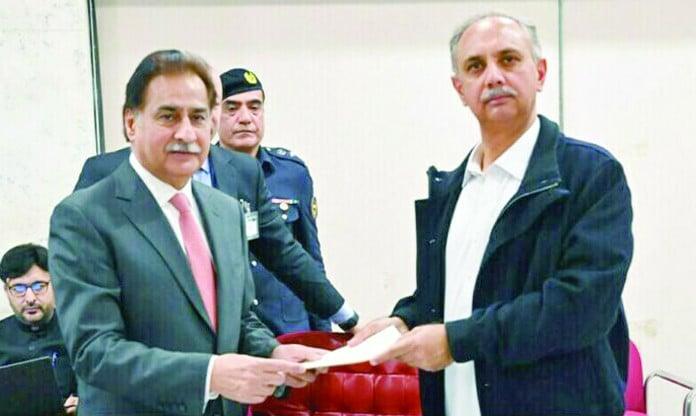The Pakistani government has officially completed its negotiation process with the Pakistan Tehreek-E-Insaf (PTI) party after PTI retired from the negotiations and rejected a renewed offer from Prime Minister Shehbaz Sharif, Express News reported.
Senator Irfan Siddiqui, spokesman for the government’s negotiating committee and a leader of Pakistan Muslim League (Nawaz), confirmed the development of an exclusive interview with the Saudi Arab newspaper, Urdu -News.
He stated that the negotiation process with PTI has been completed by saying that PTI had initially approached conversations of great urgent, but quickly retired. He noted that PTI’s only demand for conversations was the immediate release of party leaders, including Imran Khan, and that the only way forward was for PTI to ask the prime minister to request the president to pardon their judgments.
Siddiqui clarified that the negotiations had neither stopped nor broken down, but simply ended. He emphasized that, despite the prime minister, PTI’s response had made it clear that the negotiations had reached a stalemate. He pointed out that PTI’s deadline had passed and that they had dissolved their committee and marked the end of the process.
He also noted that although PTI had outlined several demands that could have built up confidence, including the formation of a legal commission, the government had been open to tackling many of these issues.
However, legal advice had indicated that a legal commission could not be set up while the case was still in court. Despite this, the government had been willing to consider a compromise.
In the question of confidence -building measures, Siddiqui stated that the government had prepared working documents for various proposals that had not been completed but could have included many appointment points. He emphasized that if PTI had been obliged to negotiations, these proposals would have been brought to the table.
He criticized PTI’s approach and said the party’s DNA and core principles were not in line with constructive negotiations, but rather with street protests and violent tactics. He noted that PTI’s actions reflected a story of going away from conversations, as seen in their sudden exit from the negotiations just days before the deadline.
The senator also revealed that PTI had specifically demanded the release of several of its leaders, including Imran Khan, Shah Mehmood Qureshi and others, and had called on the government to facilitate their release.
However, these requirements were not formally written, but were communicated verbally, where PTI also called for the release of other prisoners. According to Siddiqui, these requirements were the primary focus, while other issues, such as the formation of a Court Commission, were secondary.
As for the Pakistan Electronic Crimes Act changes, Siddiqui expressed his personal belief that broader consultations were needed. He acknowledged that the law should distinguish between legitimate journalism and the spread of fake news.
He confirmed that journalists who complied with professional standards would not be affected by the law, but those dealing with spreading harmful content would be.
The senator concluded by saying that he had advised the prime minister to listen to journalists’ concerns and work to change the law to tackle their complaints. He expressed his commitment to working on this question beyond his official tasks.



